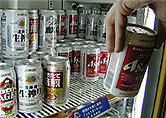|
Melbourne: Corporations rely heavily on brands for their success. And brand building is a complex activity for any organisation. Recently Business Week ranked the top global corporations in terms of brand value. What is disheartening is the absence of any Indian company in the top 100 list. What is the underlying issue behind Indian companies not finding a place in the club of global elite brands? According to Business Week, the global brand leader yet again is the US-based soft drink giant Coca-Cola. This multinational brand is growing by leaps and bounds in terms of brand value. Its brand extension and popularity have reached the villages and remote areas of the African continent. But before getting into the crux of brand power, one needs to clarify whether maintaining and sustaining the brand is a useful function of managing knowledge. The answer is simply yes, and to develop and sustain a global brand is one of most complex tasks for any corporation. In the Indian context, except for the knowledge-driven IT industry, other sectors such as retail, pharmaceutical and consumer durables present a pretty dismal picture in terms of brand power at a global level.  From a sectoral perspective, the only pride for Indians is the IT industry in terms of global branding. So is the marketing strategy of Indian firms, or their advertising campaigns, not knowledge-oriented enough to catch the attention of the global market? From a sectoral perspective, the only pride for Indians is the IT industry in terms of global branding. So is the marketing strategy of Indian firms, or their advertising campaigns, not knowledge-oriented enough to catch the attention of the global market?
We often boast that Indians are one of the world's most intelligent and skilled people. This has often been proved right in the IT scenario. Since the IT boom started in the 1990s, and to the present day, Indian IT professionals are in demand in every market. Despite the sluggish growth in the global IT environment, the booming Indian IT sector is a top player. Companies such as Infosys, Wipro and Satyam Computers have created a strong brand power in the IT world. Today the shares of these companies are traded on the world's most famous bourses in New York.  Being a services sector, the cardinal elements that trigger and sustain growth in IT are the knowledge capabilities and skills involved. To develop and implement a software technology or application the key capabilities are strong motivation, power to innovate and the right knowledge, backed by a wealth of experience. Indian IT companies have often proved to their clients their strengths and capabilities in delivering quality services. Being a services sector, the cardinal elements that trigger and sustain growth in IT are the knowledge capabilities and skills involved. To develop and implement a software technology or application the key capabilities are strong motivation, power to innovate and the right knowledge, backed by a wealth of experience. Indian IT companies have often proved to their clients their strengths and capabilities in delivering quality services.
These companies educate their clients through transfer of knowledge. Both client growth and market share are achieved through the quality of such knowledge transfer. Moreover, employees of these IT firms have strong skill sets for new knowledge and build new technologies for the future. Therefore, the question to ask is why is this not a regular occurrence in India in other sectors? Is it the lack of management in recruiting the right minds, the lack of fundamental know-how to develop and build a brand, or the currency value that is affecting us in terms of exchange rate? There are too many issues to mull over. But Indian corporations do not yet seem to have the answers.  It will be an interesting exercise to study how corporations from Korea and Finland have developed global brands such as Samsung and Hyundai. What is the secret behind the success of these reputed companies? Why cannot Indian corporations build a global brand if these countries can? Multinational corporations such as Nokia (Finland), IKEA (Sweden) and Samsung (South Korea) have successfully built global brand power. It will be an interesting exercise to study how corporations from Korea and Finland have developed global brands such as Samsung and Hyundai. What is the secret behind the success of these reputed companies? Why cannot Indian corporations build a global brand if these countries can? Multinational corporations such as Nokia (Finland), IKEA (Sweden) and Samsung (South Korea) have successfully built global brand power.
For that matter, Samsung has successfully penetrated various markets and positioned its products as a luxury brand by providing cutting-edge, innovative technologies such as plasma TV and remote control-driven home appliances. Even a tiny island, Bermuda, known more as a tourist haven, has reason to feel proud, because of the presence of the Bacardi brand in the global top 100. The big question is why a nation like ours, with over a billion people, cannot build a global brand through all these years of existence. What is the solution? If even one Indian organisation can hit on the right formula to attain global brand status, it may help others to build successful global brands in other sectors. (The writer is a PhD student at the University of Melbourne. The views expressed are personal. He can be contacted at krish_venkit@yahoo.com)
|